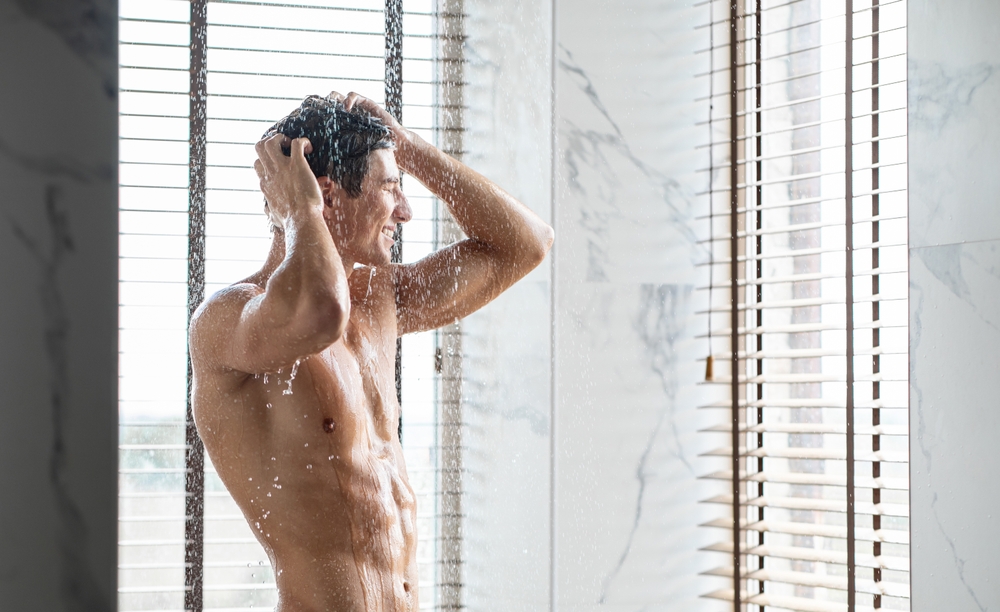
Imagine stepping into the shower and skipping the soap entirely—just water, maybe a splash of rinse. That sounds odd to many, but a growing number of men are experimenting with soapless hygiene routines. They claim healthier skin, fewer breakouts, and a more balanced body odor. Psychologists and dermatologists are intrigued—this isn’t just laziness, it may reflect deeper beliefs about microbes and self-care. Whether you’re curious, skeptical, or appalled, understanding this trend offers insight into how notions of cleanliness are evolving.
The Rise of the “Anti-Soap” Movement
Though still niche, the idea of skipping soap has caught attention in health and lifestyle circles. Esquire recently profiled men who’ve abandoned soap and still appear clean and odor-neutral. The trend draws on microbiome science and critiques of over-cleansing. Many believe our skin’s natural bacteria get disrupted by harsh cleansers, leading to imbalance and odor. A physician, James Hamblin, famously experimented by ditching soap for years and documents his findings in Clean: The New Science of Skin.
The Science Underneath—Microbiomes at Work
Our skin hosts trillions of microscopic organisms—bacteria, fungi, and more—that form a “microbiome” ecosystem. These microbes help protect us from pathogens, regulate pH, and compete with odor-causing bacteria. Excessive soap or antibacterial agents can wipe out beneficial species and open space for more pungent ones to dominate. Hamblin argues that by cleaning less, your ecosystem rebalances, leading to fewer odor problems over time. That said, the research is still emerging—skin microbiome science is complex and context-dependent.
Motivations Beyond Smell
Why would someone choose to forgo soap? For many, it starts with skin irritation or dryness caused by soaps and body washes. Some are drawn by the minimalism and time savings, cutting down grooming routines. Others frame it as resistance to marketing that sells cleanliness as essential. And a few view it as a health experiment—testing how their body adapts when not constantly scrubbed. Whatever the reason, it’s often a personal journey more than a trend.
How They Do It—Cleansing Without Soap
These men don’t simply stop showering—they adapt their routines. Many continue to shower daily (or near daily), using just hot water or rinse and scrub methods in sweat-prone zones. Esquire’s profile notes one man still washes his hands and face with soap—that’s often nonnegotiable. Some use cloths or flannel, gentle exfoliation, or rely on sweat and water to carry away dirt. Others make incremental changes, tapering down soap use rather than going cold turkey. Still, complete avoidance—no soap anywhere—is rarer and more controversial.
Risks, Realities & What Experts Warn
This experiment doesn’t work for everyone. Some people may develop odor, fungal overgrowth, or acne flare-ups in the early stage. Rinsing alone may not remove oils, sunscreen, dirt, or pollutants effectively—especially after workouts or in hot climates. Dermatologists caution that skipping soap doesn’t substitute for hand-washing, especially after bathroom use or before eating. The key is discernment: certain zones (hands, armpits, groin) may still require cleansing. Until science is settled, many experts suggest a hybrid approach—mild, microbiome-friendly cleansers rather than no soap at all.
Why Men (Particularly) Are Leading This Shift
Men may gravitate toward this trend for unique reasons. Traditional masculinity norms often discourage overt grooming—but rejecting soap can be framed as rugged or natural. Some men chafe against societal pressure to smell like fragrances or chemical products. Skin conditions like eczema or shaving irritation push some to scale back on harsh soaps. And finally, the trend appeals to those who prefer more control over their body’s state rather than outsourcing “cleanliness” to products. It’s a blend of identity, autonomy, and experimentation.
A Balanced Path Forward for Hygiene
The soapless movement invites us to rethink clean: not as an all-or-nothing battle, but as calibrated care. You don’t need to choose extremes—experiment with gentler soaps, reduce frequency, pay attention to odor cues, and listen to your skin. If you try soapless, start gradually: skip it one or two days and monitor how your body responds. Always maintain hygienic practices for hands and high-contact areas. And understand that personal biology, environment, diet, and genetics all play big roles.
What This Trend Teaches Us About Cleanliness
This soapless movement tells us that hygiene is not static—it’s evolving alongside our understanding of biology, identity, and health. What once was taboo or strange becomes a form of curiosity, experiment, or assertion of personal agency. We live in a world where “clean” is marketed aggressively, often overselling what surfaces can truly do. Men abandoning soap challenge that narrative and force conversations about what “good hygiene” actually means. Whether the trend becomes mainstream or remains fringe, it’s a mirror we can use to examine our assumptions.
Would you try skipping soap—or have you met someone who already has? What’s your take on hygiene, skin health, and this trending experiment? Share in the comments below!
What to Read Next
- Dental Help: 8 Clues Your Dental Hygiene Is Turning Her Off
- 7 Lies About Personal Hygiene That Men Believe And They Stink
- When She Has Poor Hygiene: 10 Subtle Ways To Get Her to Clean Up Her Act
- 10 Hygiene Mistakes Men Make That Women Hate
- 9 Barbershop Practices That Stylists Admit Are Outdated
The post Men Who Don’t Use Soap: The Hygiene Trend No One Saw Coming appeared first on Clever Dude Personal Finance & Money.







